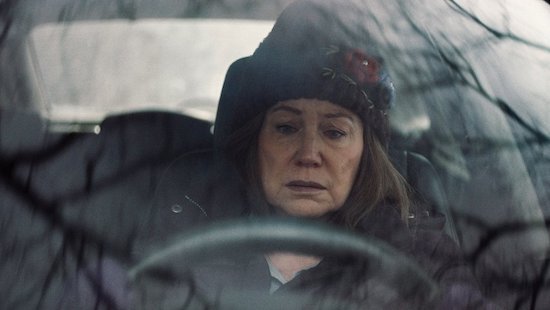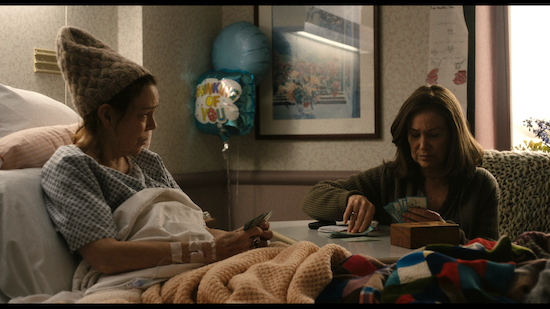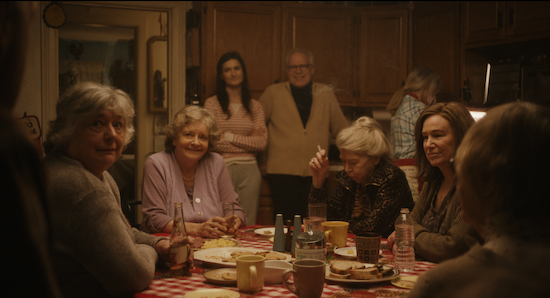Film: Diane

Diane, the narrative debut by Kent Jones (director of the New York Film Festival) is a thoughtful, deeply affecting film, especially so for viewers who are middle-aged or older, or have recently been touched by death. (Though all but the most shallow of viewers will probably feel something.)
The film, which stars Mary Kay Place in one of the most intense and substantial roles of her career, is the portrait of a woman who busies herself caring for those around her while struggling with shame, loss and no less than the meaning of life itself.
In many ways she is like all of us, which is why the movie resonates. Ostensibly a simple story of an ordinary life in a New England town, Diane almost furtively tackles the Big Issues. The film starts off stylistically straightforward, with close-ups of mundane kitchen items and conventionally framed conversations, before becoming progressively more surreal, as if showing how we, like Diane, are part of a bigger picture that we can’t really control, or even grasp at times.

We first see Diane asleep in a hospital room chair, as the room’s occupant, her cousin Donna (a sharp Deirdre O’Connell), asks if she’s OK. Throughout the movie, various friends, relatives and acquaintances will inquire about Diane’s well-being, as she cares for them. A retired widow, she brings food to ailing neighbors and volunteers at a soup kitchen with her friend Bobbie (a sympathetic Andrea Martin). She also visits her son Brian (Jake Lacy), a relapsed drug addict hostile to his mother’s entreaties to get help.
Diane has dinner with assorted friends and relatives, all of whom are openly concerned about the toll Brian’s plight is taking on her. “You’re not alone,” they insist, echoing her words to Brian. And indeed she is surrounded by a caring, close-knit community. The excellent cast of older actors includes Estelle Parsons as Diane’s aunt Mary, Donna’s mother; mother and daughter are amusingly blunt and classically New England in their ways, which makes for some light moments.
Diane repeatedly drops in on Brian, who is in worse and worse shape, until one day he disappears, which begins her unraveling. During a hospital visit with Donna, an old betrayal surfaces, and it becomes clear that this is the impetus behind Diane’s actions. We’re exhausted for her, as she drives a regular circuit that includes Brian’s place, the hospital, the soup kitchen, among other destinations.

When Brian finally resurfaces at a particularly fraught moment, Diane doesn’t seem especially relieved, though we understand her wariness and weariness. She is shown periodically writing down her thoughts in a journal, along with to-do lists, but her musings don’t necessarily lead to answers.
The film gradually takes on a hallucinogenic quality as it skips ahead in time and one by one, people exit Diane’s life. (Several variations on “No one lives forever,” are uttered over the course of the film.) A new development in Brian’s life flips their roles; a final scene between mother and son, touching on another of the film’s themes—forgiveness, is a poignant and welcome chapter in the film. The human connections and emotions in Diane feel real in their confusion and messiness.
By the movie’s end, we might feel a little depressed, but also a bit wiser. No matter how we struggle with relationships and try to do the right thing or what we think is the right thing in life, we all basically end up the same. Whether that’s a comfort or disappointment is something worth contemplating, as is the film itself.
Diane opens on Friday, March 29, at the IFC Center in New York City .
—Marina Zogbi


